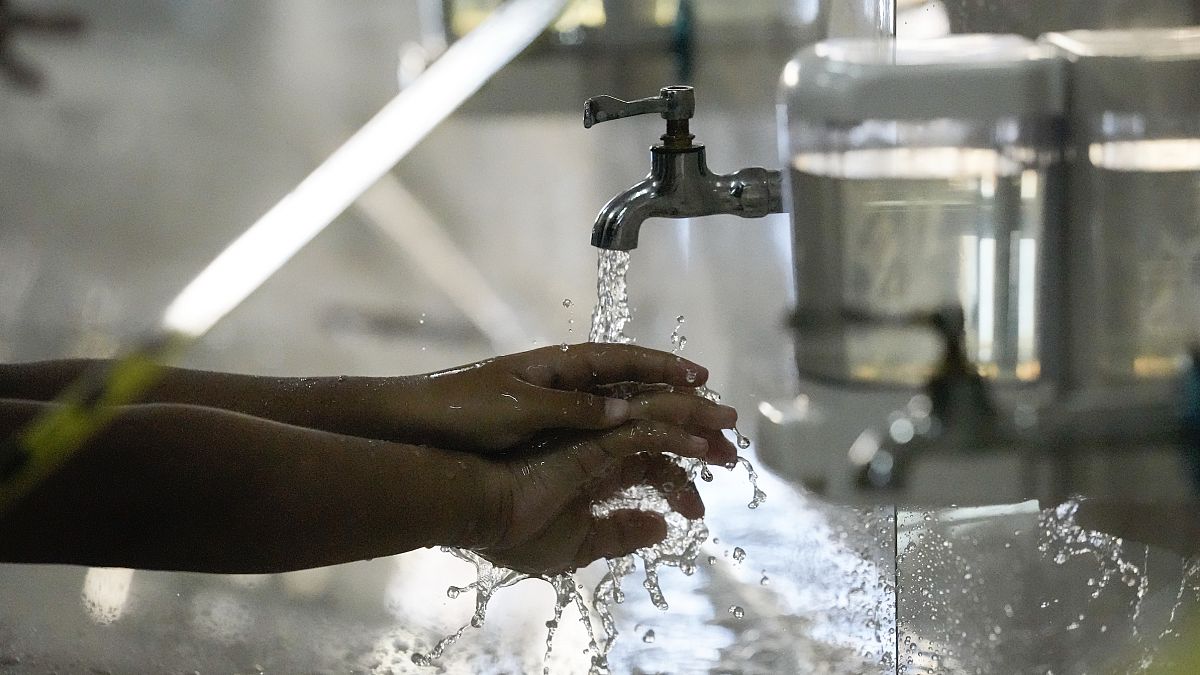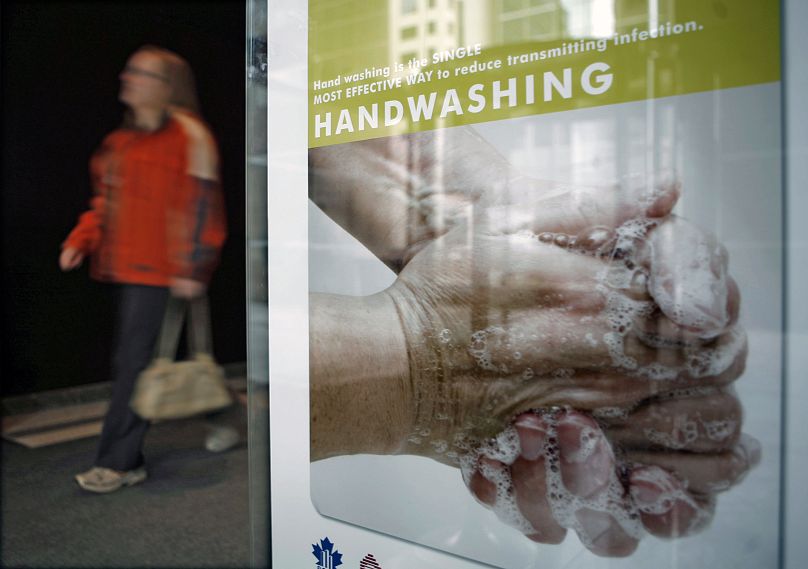The latest available data shows that washing one's hands needs to be taken more seriously in the Netherlands, especially at a time when the flu outbreak is in full swing in Europe. Euronews Health takes a look at Europeans' handwashing habits.
As Europe grapples with the flu season personal hygiene is more important than ever.
The infection, formally known as influenza, may not seem all that dangerous thanks to advancements in vaccines, but it kills an estimated 27,600 people every year around Europe.
Hand washing is a basic hygiene practice that many take for granted but there is big discrepancy among European nations about how committed they are to the practice, according to data available on Europeans' hand-washing habits.
According to latest available figures on Statista, which incidentally is around a decade old, half of Dutch people do not care all that much about washing their hands after using the toilet.
Italians take the silver in dirty hands challenge, as 43% of Italians refuse to give their hands the once over with soap.
Spaniards come in third place, with 39% not washing their hands after using the toilet, closely followed by the French with 38% and the Russians with 37%.
Next up on the list are Austrians and Latvians, with 35% of people in both countries not using the reliable soap-and-water method after finishing in the bathroom.
The Polish have a better score in hand washing, with 68% of Poles washing their hands.
Czechia and Ukraine both sit at 71% of their population washing their hands, following Bulgaria's 72%.
Next up in the list is Switzerland with 73%, which follows Ireland's 74% and the UK's 75%.
Close to a quarter of Finns do not seem to fancy washing their hands after using the toilet but a good 76% do, following their Scandinavian neighbours Sweden's 78%, which is also Germany and Iceland's score.
In the 80-percent bracket, we begin to see the countries that take hand hygiene a little bit more seriously.
Serbia comes up next with 83%, following Romania's 84% and Kosovo's 85%. The ratio seems to be the same for the Portuguese too, as only 15% of their population refuse to wash their hands after using the casa de banho.
Now, to the two nations that seemingly take hand hygiene pretty seriously: Bosnia and Herzegovina and Türkiye.
People in Turkey take the silver in hand hygiene with 94%, as their cool shooter did in the Olympics with his steady hand on the trigger.
Bosnians take it up a notch, though, with a whopping 96% of them giving their hands a nice soapy rub after going to the loo.
The data might be a little dated, but as they say, old habits die hard.

















